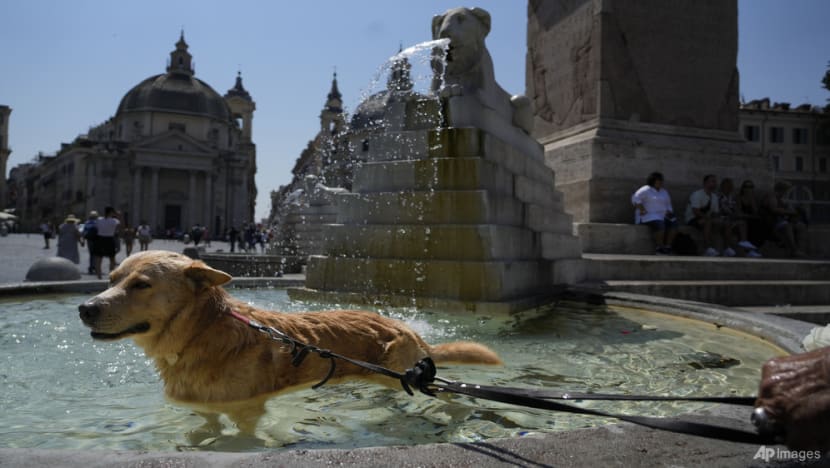Commentary: How dogs replaced children in Italy
As birth rates plummet, the country is fawning over – and spending on – pets, says Amy Kazmin for Financial Times.

ROME: Rome airport’s newest luxury hotel is designed to be a calming oasis for its guests. Rooms – with underfloor cooling – are suffused with aromatic oils such as lavender, tea-tree and mint and each has a private lawn. The property offers arnica massages, a communal garden where guests can mingle and large screens for video calls with faraway loved ones.
Yet weary human travellers will not find succour here. With a capacity for 40 overnight guests, Dog Relais is an airport hotel for canines, whose travelling owners – airline crew, business travellers or holidaymakers – need safe shelter for their pets while they are away.
“We look at providing dogs with the best experience possible in their owners’ absence,” said Roberto Tortorella, who runs Dog Relais for the airport. “Our four-legged guests must be able to express themselves freely, socialise, play and feel loved.”
The hotel, which opened in July, is part of the nation’s rapidly expanding pet service industry, catering to animals whose status has risen in tandem with Italy’s plummeting annual births. With fewer children and grandchildren to fawn over, Italians are channelling more of their emotional energy – and cash – towards a growing cadre of pampered pets, with dogs the favourite.
A MEMBER OF THE FAMILY
Italy’s official rates of pet ownership – about 40 per cent of households report having at least one pet – may still be well below those of the UK and the US, at 60 per cent and 66 per cent respectively.
But Tortorella, who also runs a dog day-care in the centre of Rome, says that while Italians have always loved dogs, “in the last 10 years, dogs or cats have really become treated as a member of the family. It’s a new, pet-friendly culture. They do the same things for their dogs as you can do with a child.”
From dog day-care with pick-up and drop-off shuttle services, to specialised pathology labs, to the organisation of solemn pet funerals, new enterprises are catering to the needs of the full pet life cycle.
In 2022, Italians spent €6.8 billion (US$8 billion) on pet care, according to Nomisma, an Italian consultancy. While dogs were once fed table scraps, people are increasingly fussy over what they give them. “They worry about what they eat, the quality,” Tortorella said. “Now people cook for their pets.”
In Rome, dogs have access to public places often off limits to animals in other parts of the world. In California, for example, it is illegal to take dogs – apart from service pets – into grocery stores or restaurants. Here, however, no one blinks an eye at seeing them in food shops, indoor restaurants or shopping malls. My local grocery even has two designated shopping trolleys for dogs to ride in.
They have breached the corridors of power too. Senator Michaela Biancofiore recently won the right to bring her beloved 12-year-old dog, Puggy, to work, setting a precedent.
“I work here from morning to night and the dog can’t be left alone all day,” Biancofiore told me in her senate office as Puggy lolled in the corner. “A dog sitter won’t give the same attention as her owner.”
MORE LOYAL THAN HUMANS
Not everyone is happy with pets’ new prominence. The late Pope Francis repeatedly decried couples choosing to have more pets than children, which he said “diminishes” humanity.
But politicians are embracing the trend. Prime Minister Giorgia Meloni’s government has begun allocating €250,000 a year for an “animal bonus” to help elderly pet owners with limited incomes cover some of their veterinary expenses. Penalties for crimes against animals were recently stiffened.
Guglielmo Giordano, founder of the fast-growing animal pathology laboratory MyLav, said pets’ status has changed profoundly from mere animals to “centres of affection”.
That resonates with what I’ve seen. At my neighbourhood park, I’ve been moved by a man who carries his ageing dachshund in his arms, gently sets her down in the grass to waddle around, then carries her home again.
For many Italians, dogs are simply more loyal companions than other humans. As one airport worker told me: “A dog won’t betray you.”














